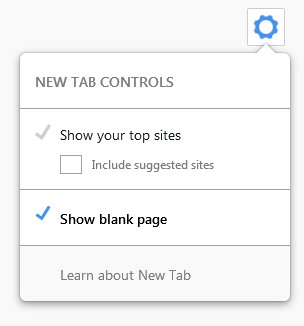29
3
For some reason, When I click view page source on an "empty" new tab in Firefox 55.0.2, there's bunch of HTML stuff (which I don't really care about).
However once I see:
<script type="text/javascript" src="chrome://browser/content/contentSearchUI.js"/>
<script type="text/javascript" src="chrome://browser/content/newtab/newTab.js"/>
In there my alarm bells go off. Why is there javascript? What is this?
Why is it there in the first place? (a supposedly EMPTY NEW TAB).
Why is there a reference to "chrome://browser/". What's going on?

41"chrome" was generally used to refer to GUI interfaces (in browsers, specifically the browser UI portion) considerably prior to the existence of Google Chrome. Google chose to name their browser with the generic term, thus causing no end of confusion. This choice may have been just because they thought it sounded good. However, given the effects, there are many less benign hypothesizes as to the reason for the choice (e.g. they were lazy/unimaginative; deliberately benefit from people thinking the existing and continued use of the generic term "chrome" is referring to Google Chrome; etc.). – Makyen – 2017-08-24T17:39:04.337
10@Makyen that would be a great answer. There's a big field at the bottom of the page that says "Your Answer", you should type it there. – Devil's Advocate – 2017-08-24T19:31:08.740
12
It's just like user agents all start with
– phuclv – 2017-08-25T01:53:34.047mozillaeven though those browsers have no relation to Firefox at all1
See also: https://superuser.com/questions/517160/why-does-firefox-use-the-chrome-protocol-schema-in-urls
– Bob – 2017-08-25T06:54:18.830"chrome" means "shiny". https://www.youtube.com/watch?v=mhm-4kDBhio&t=44s
– Agent_L – 2017-08-25T09:27:16.3071
See https://superuser.com/questions/364664/what-are-the-chrome-and-resource-protocols-in-firefox
– bwDraco – 2017-08-26T16:09:59.000